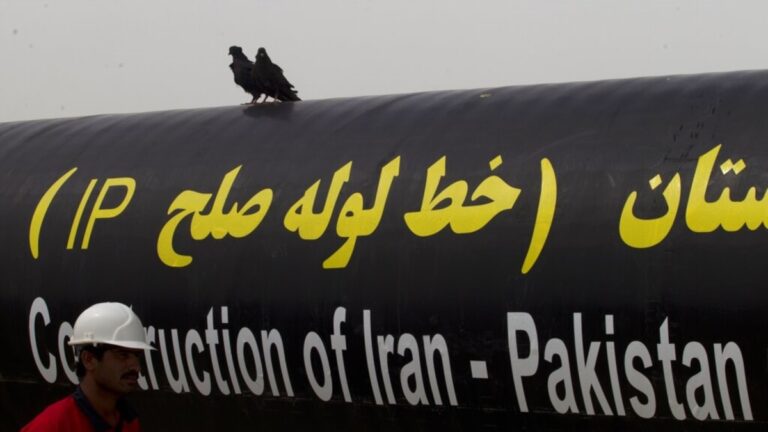Pakistan has hired two U.S.-based law firms to represent it at an international court of arbitration to fight Iran’s demands to force its neighbor to uphold an end to a gas pipeline deal or pay huge fines.
Tehran and Islamabad signed a gas sale and purchase agreement (GSPA) in June 2009 for a cross-border pipeline that would supply up to 1 billion cubic feet of gas per day from Iran’s South Pars field to energy-starved Pakistan.
However, Pakistan has not started construction of the pipeline within its territory, mainly to avoid US sanctions.
In August, Pakistani media reported that the Iranian government had sent a final notice to Islamabad ahead of negotiations with a Paris-based arbitration body.
Two law firms. Wilkie Farr and Gallagher, as well as White and Case, will represent Pakistan in the arbitration proceedings, a senior official in Pakistan’s attorney general’s office confirmed to VOA on Wednesday. The official spoke on condition of anonymity because he was not authorized to speak to the media.
Islamabad reportedly faces penalties of up to $18 billion for project delays.
background
In 2011, Iran announced it had completed construction of a 900-kilometre pipeline on its side of the border.
Two years later, then-Iranian President Mahmoud Ahmadinejad and Pakistani President Asif Ali Zardari launched a $7 billion project on Iranian territory.
In 2014, Pakistan requested a 10-year extension to the project to avoid paying penalties of up to $1 million per day starting in 2015.
Nearing the end of the extension period in March 2024, Pakistan’s outgoing caretaker government hastily approved the construction of an 80-kilometre pipeline section from the border with Iran to Gwadar, an important port city in southwestern Balochistan province.
However, construction has not yet begun.
Last month, Pakistan’s Oil Minister Musaddiq Malik told parliament that international sanctions were preventing the cross-border pipeline from going ahead.
“This is a very complex issue and involves international sanctions,” the minister said.
He denied reports that the country could be fined $18 billion, but did not specify the amount.
Hours before the minister’s remarks, U.S. State Department spokesman Matthew Miller reiterated Washington’s warnings against doing business with Tehran.
“We will continue to impose sanctions on Iran and advise anyone considering doing business with Iran to be aware of the potential consequences,” he told a regular press conference.
Iran is under US sanctions over its nuclear and ballistic missile programs.
Although Pakistan has occasionally shown defiance of U.S. warnings, it does not appear to have done so operationally or publicly.
Pakistan can build pipelines within its borders, but would need sanctions waivers from Washington to buy gas from Iran. Islamabad has not obtained exemption.


